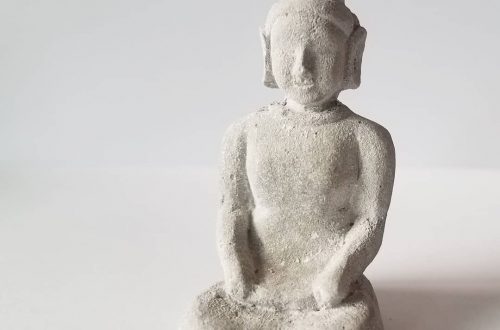
Anxiety and Meditation
Anxiety is an emotional state of stress caused by worry, fear, and concern for future events.
It is experiencing the unknown and responding to it by projecting negative possibilities. We all experience anxiety in our lives, some to different extent than others. This article is not talking about chronic anxiety but rather a sort day-to-day anxiety that we may all experience. This is not to say that people suffering from chronic anxiety won’t find meditation and this article useful. In fact, I think they will, but I am not a doctor or a psychologist,therefore, I do not feel I can appropriately address this type of anxiety.
Why do we experience anxiety?
Anxiety is the brain’s way of telling the body to be cautious. It prepares our body to go into flight or flight mode. Sometimes, when one is in danger, this is a great tool! When danger is not present (and sometimes even when it is), anxiety can be debilitating.
Anxiety can be a bad thing. However, in moderation, like most things, it can be beneficial.
On a biological level, it makes sense to have anxiety so that we may avoid dangerous situations. When coming face to face with a tiger we want to be fearful that it might attack. Just before a competition, an extra dose of adrenaline caused by anxiousness can allow an individual to increase their performance. On occasion, feeling anxiety may reveal to one’s self that they are intuiting a bad situation without being consciously aware of it.
So, the goal when addressing anxiety is not to completely eliminate it from our lives, but to instead learn how to respond to it and then how to control it. Mediation, weather zazen (seated meditation) or mindfulness (incorporating meditation techniques to our daily lives) is a useful tool in learning how to do so. Meditation does two things that are useful in controlling and responding to anxiety. First, meditation trains our minds to remain in the present moment. Second, Meditation trains our mind to choose productive thoughts.

Anxiety, though it may increase our performance on occasion and prepare us to run away from actual tigers, does not help us with dealing with metaphorical tigers. Now what do I mean by a metaphorical tiger?
Metaphorical tigers are the problems in your life that you make up that haven’t happened yet.
These problems only exist in your brain and even if they did happen, running away from them and/or freezing up wouldn’t help the situation. This is when learning to recognize anxiety and then learning how to dismiss it becomes important.
For example, the other day I was waiting to turn left on a very busy two-way street. I tend to be an anxious driver. An opening wasn’t coming! I could feel the person behind be growing impatient. I imagined him honking and getting out of his car in an angry rage. My anxiety kicked in and almost caused me to lunge into the intersection at an inopportune moment.
Upon almost putting myself and others into a dangerous situation, I realized that all the thoughts I had about the man behind me and the traffic were just that: my thoughts. He had not yet honked, he had not yet gotten out of his car and soon enough a break in the traffic would come if only I was patient. I took a deep breath and imagined the person behind me as relaxed and patient driver, I imagined a break in the traffic. I was now back in control and able to focus on safe driving. Sure enough, a break came and the man behind me was just fine.
Often, I find I have a tendency to hold on to my anxiety when I feel that my worries are helping me prepare for the worst possible outcome.
It comes from a very logical thought: if I can think up all of the possible outcomes then, when one of them happens, I will be prepared. Although this may seem to make sense, this can be easily dismissed by experience. By thinking up the worst possible outcome I was causing my paraphyletic nervous system to kick into high drive and I lost my ability to be in control.
Being calm and in control of my thoughts and emotions has always allowed me to respond to any situation effectively and much better than responding from a place of negative thinking, worry and anxiety. Recognizing this made taking time to practice responding and controlling my anxiety a priority in my life. I quickly took up a meditation practice and the benefits have been astronomical.
If I find myself feeling anxious, the first question I should ask myself is: what am I worried or fearful about? Then, at this point, I need to recognize that all of the outcomes are in the future and have yet to happen. With this recognition I need to change my thoughts and project positive outcomes into the future. This is something that meditation has made easy for me. A daily practice of meditation allowed me to be present and choose productive thoughts over negative overwhelming ones.



